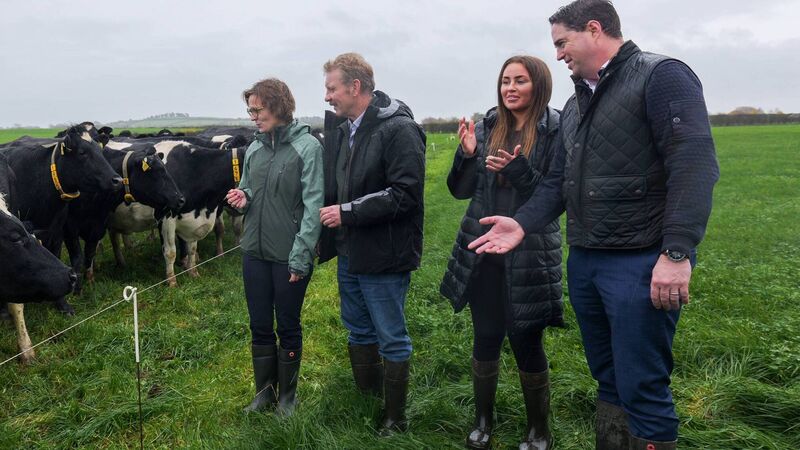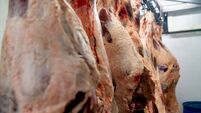Is this likely to be Ireland’s last derogation?

Agriculture minister Martin Heydon and European environment commissioner Jessika Roswall visited the farm of Pat and Kaleigh Durkin near Kilcullen, Co Kildare, on Friday. Picture: Department of Agriculture
With difficulty securing an extension of the nitrates derogation into 2026, many in the sector are beginning to wonder if this could be Ireland’s last.
Despite mounting pressure from the European Commission over water quality and new obligations under the Habitats Directive, minister of state for agriculture Martin Heydon said he remains “hopeful” — but warned that the next negotiation will be “a big undertaking”.
CLIMATE & SUSTAINABILITY HUB













